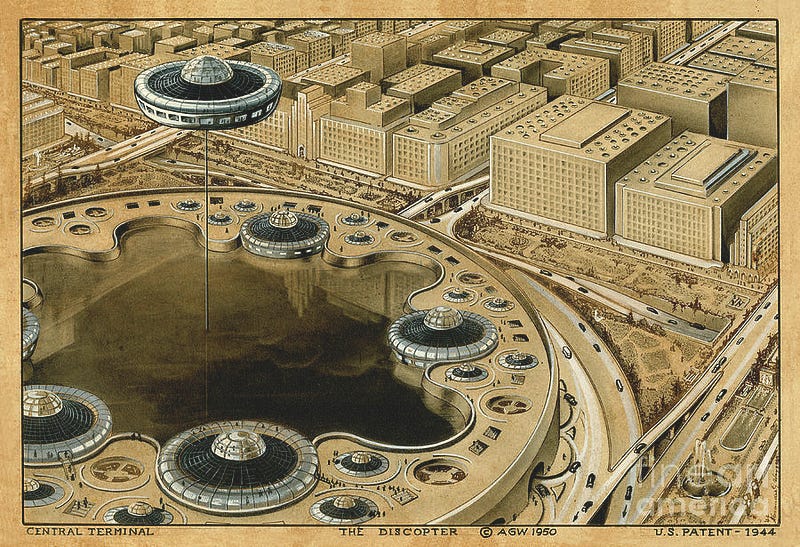The future of technology

To see our collective evolution we just have to peer through the ages; Paleolithic, Neolithic, Bronze, Iron, Middle, Renaissance, Industrial and today, the Information Age. Every new invention birthed a new age, ergo the Internet birthed the Information Age.
The Internet has disrupted every known industry and created new ones; search engines, digital payments, social networks, instant messaging, video conferencing and the list goes on. The Internet is the closest humans have come to telepathy; a network of fiber optic highways, instantaneously connecting each machine to the other. Machine being an extension of our self. The modern Internet was created in 1990 and in twenty-eight short years it has become the foundation of modern society.
Historically, every disruptive technology proved to be a paradigm shift; fire, wheel, clock, steam engine, printing press, electricity and now the Internet. Moore’s law famously states that the number of transistors in a dense integrated circuit doubles about every two years. Similarly I contend the following:
As technological growth becomes exponential the time period between discoveries accelerate.
The current tech landscape is dominated by a monopoly of powerful companies like Google, Facebook, Amazon and Apple. But just as technological breakthroughs become frequent so will the frequency of new tech companies. The next billion dollar company will be an innovator in technology like Artificial Intelligence, Blockchain, Internet of Things, 3D printing, Drones etc.
The prevailing notion is, that the corporations’ with the largest research and development funds will be the creators, curators and benefactors of new tech. Yet nothing could be further from the truth. Google started by Sergey Brin and Larry Page invented the page-rank algorithm which propelled Google to the top of the search engine competition, eclipsing a giant like Yahoo. Similarly, Facebook with its humble beginnings from a college dorm room at Harvard became the biggest social networking website when Orkut and MySpace were kings. Amazon which started as a digital bookstore became the biggest marketplace in the world defeating a behemoth like Ebay. So bigger doesn’t mean better, at least not in the tech world.
The reason large companies fail at seizing “big opportunities” is due in part to social hierarchies. In a social hierarchy the main priority is to manage labor rather than ideas. Large companies are bureaucratic structures with entrenched social hierarchies. In a bureaucracy the currency of value is political capital. Any person who presents new ideas is a threat to the homgenity of the bureaucratic structure because if their ideas are successful they will leap frog the bureaucrat in the hierarchy. Thus, large social structures become rigid systems which self regulate personal interest and become gatekeepers to great ideas. Bureaucracy is the death of new ideas.
Although we will continue to enjoy new unprecedented technologies, the price we pay will be of our privacy. As smart devices become ubiquitous so does data and the tech giants have more data about us than every period in human history, combined. They use our data for a plethora of reasons; to improve AI research, for behavioral pattern matching, individualized preferences and ofcourse commercial sale for targeted ads. For the first time in human history, all our personal data is being recorded and analysed. Like religion, we take a blind leap of faith in these data aggregators. Google’s “Don’t be evil” slogan sounds like an ominous Orwellian warning than a motto to live by.
It is hard to predict the future, the easiest way is to write cryptic messages like Nostradamus — open for interpretation! But my prediction for the future is rather simple. Technological breakthroughs will occur at an accelerating pace, new players will dethrone legacy players and we will see an end of privacy. If the future is truly decentralized as promised by the Cyperphunks a new social hierarchy will emerge. If the anarcho-syndicalists are correct, fast and mercurial times lie ahead.
